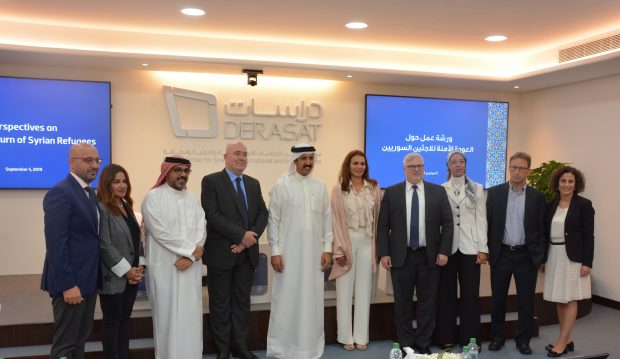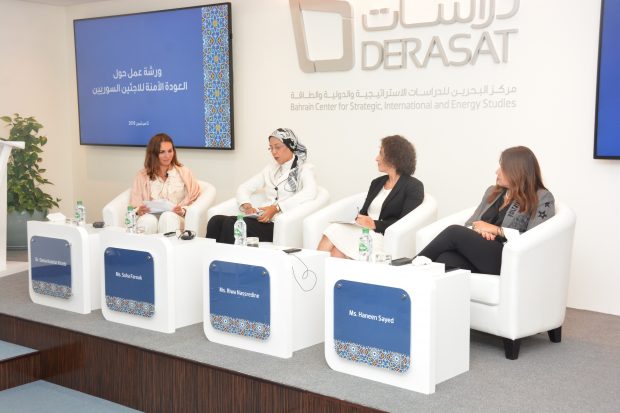
Bahrain workshop experts discuss safe return of Syrian refugees

By Habib Toumi
Manama: The U.S. wants Syrian refugees to return to their homes in Syria but insists it should be done in the right conditions, a senior U.S. official has said.
“We are here to dispel myths about U.S. policy and to reiterate that the U.S. wants Syrian refugees ultimately to return to their homes in Syria,” Joel Rayburn, Deputy Assistant Secretary of State, Special Envoy to Syria, said at a workshop in the Bahraini capital Manama.
“However, their return to Syria must be safe, voluntary, and dignified, and must meet with the necessary conditions in order for returns to be sustainable,” he said at the half-day workshop to discuss the issue of the safe return of Syrian refugees.
The workshop, The Safe Return of Syrian Refugees Workshop, was organized by the Bahrain Center for Strategic, International, and Energy Studies “Derasat”.
It aimed at presenting the situation of the refugees in host countries as well the conditions inside Syria and whether those conditions permit a sustainable return.
The workshop presented a platform for Western countries to clarify their position on the return of the refugees and brought together experts and senior officials from the UN ESCWA, UN Habitat, World Bank, research centers, non-governmental organizations as well as government officials.
The envoys helped clarify the western position on the issue of return. The UN Security Council resolution 2254 (2015) states the need to build conditions for the safe and voluntary return of refugees, however, there is no clear policy on how this will be implemented.
The workshop discussed the diverse perspectives on the issue of return as well as determining the Western position in this regard.

“In our program we research the different elements needed to build a better future for the Syrians once there is a political settlement,” Riwa Nasreddine the Manager of the National Agenda for the Future of Syria program under the UN ESCWA said.
“In this platform we presented our research on elements of an inclusive and sustainable peace and reconciliation. Regardless what kind of political solution is brought forward, a real inclusive and sustainable peace cannot be found unless residents of the same city, the same town and the same neighborhood from different backgrounds and with different political views learn to live together again. An important part of our research tackles this very important issue.”
Dr. Shaikh Abdullah Al Khalifa, Chairman of Derasat said they had invited individuals who could speak objectively about the situation.
“Although these discussions are not negotiations nor peace talks, we would like to see positive outcomes resulting from it,” he said.
“We are handling a very specific issue and we want the message and the discussion to be focused around it, which is to examine the policies available and how they can be implemented to maximize the help offered to the refugees.”
Dr. Shaikh Abdullah stressed DERASAT’s position as a platform for dialogue to put forth important policy recommendations for the region towards promoting peace and stability.


